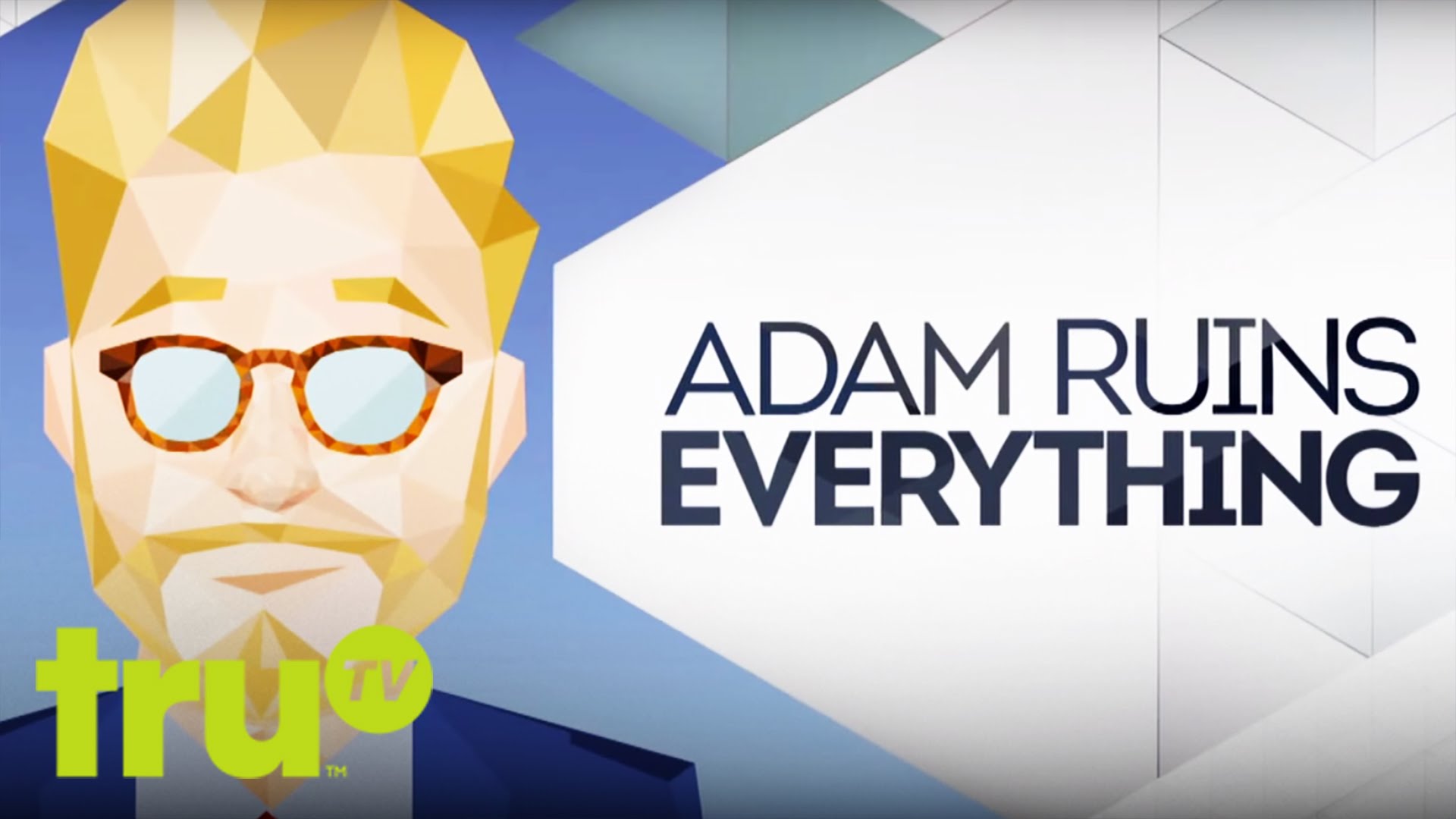Everyone loves the truTV comedic, sort-of documentary series Adam Ruins Everything, which takes down society’s biggest misconceptions in rapid fire fashion, providing both hilarity and head-shaking. Until it happens to them!
I’m a skeptic. So much so that I’m actually on the board of directors for a group called the New York City Skeptics. That basically means we evaluate claims based on evidence, applying the tools of science. There are no sacred cows, and no “obvious truths” beyond questioning.
So naturally, we’re big fans of Adam Ruins Everything — host Adam Connover rights the wrongs and makes the impact we so often wish we could (with bonus citations to keep him honest!). But wait, he couldn’t actually ruin our precious science, could he?

No, not really. And he admits as much in the Season 2 episode, “Adam Ruins Science.” When a plucky student says to Conover, “Science is how we find out the truth about the world,” he flatly replies, “Yes, it is.” But that doesn’t mean its methods are always sound.
The episode mainly addresses medical science, and the near-ubiquitous use of mice as “model organisms” — that is, an animal close enough to humans that we can test would-be drugs or treatments on them. Problem is, according to Conover’s sources, while 95% of medical research is done on rodents, the results don’t apply to humans 80% of the time. We’re simply too different, and the fact that a certain cancer drug is harmless to mice but causes acute, multi-organ failure in people goes to show that. Conover says the FDA almost never approves human trials until mouse studies have been done first, essentially building a house of cards on a shaky practice.

But they’re so cute!
There’s also the problem of where the money to do research comes from, as shown in a nice parody called “Smart Tank,” where a private donor, “Big Pharma” and Uncle Sam all field pitches for projects. Obviously industry wants to know ahead of time if they’ll be able to market the results, private donors fund the issues that have affected them personally and the government is constantly being pulled in multiple directions by constituents and lobbyists. So the likelihood of getting to do a project you want to do, regardless of any “real world” benefit, seems pretty small.
Thankfully, during a recent public screening of the episode for the NYC Skeptics, member Danny Korostyshevsky and his wife, board member Yelena Bernadskaya, were on hand to be skeptical of the skeptic. Korostyshevsky, who is now in sales after doing neurologic research on mice, clarified that most scientists do understand the limitations of mouse studies — that’s why they’re typically only done when looking at processes that actually do occur in us as well as them.
On the funding front Bernadskaya, who still does postdoctoral research, said that her work probably doesn’t pertain to people that much, but she’s sympathetic with the hoops donors make scientists jump through. She’s heard plenty of potential funders use the word “translational,” which is is basically code for, “That’s great, but we can’t pay for this unless there are applications for people.”
Private donors, the pair agreed, are actually a lot more important than people realize. Yes, they tend to only care about rare diseases that afflict people they know, but there are so many out there that they’ve done some real good. A treatment for Progeria, for example (the disease that causes rapid aging and death usually by age 13), was recently developed thanks to private donors. It never would have happened any other way, considering only about 200 people at any one time suffer from Progeria, making the sunk cost unjustifiable to public or corporate sources.

So it’s always important to question what we know, and even to question those questions. Adam didn’t really ruin science in this episode, because it knows where it’s lacking and tries to figure out what to do about it. Or, as Brian Nosek of the Center for Open Science puts it, “The reason to trust science is because it doesn’t trust itself.”
The Critical Angle is a recurring feature that uses critical thinking and skepticism to analyze pop culture phenomena. Skepticism is an approach to evaluating claims that emphasizes evidence and applies the tools of science. Rather than repeating the same old assertions, we put them to the test.
Join the AIPT Patreon
Want to take our relationship to the next level? Become a patron today to gain access to exclusive perks, such as:
- ❌ Remove all ads on the website
- 💬 Join our Discord community, where we chat about the latest news and releases from everything we cover on AIPT
- 📗 Access to our monthly book club
- 📦 Get a physical trade paperback shipped to you every month
- 💥 And more!













You must be logged in to post a comment.